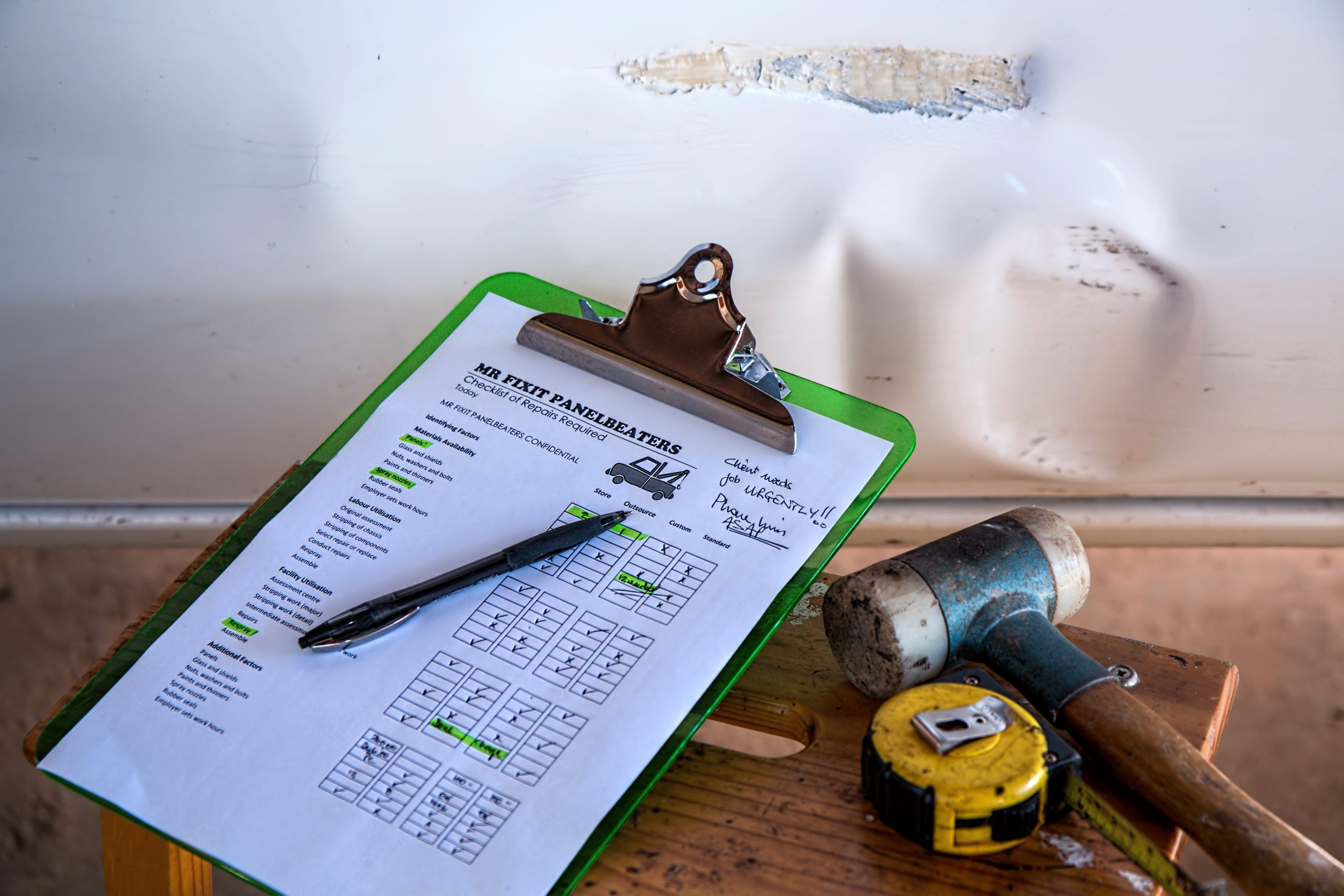 The process of filing insurance claims can be time-consuming, demanding careful attention from all parties involved. In a recent ruling by the First Circuit Court of Appeal in Louisiana, the importance of timely and exhaustive pursuit of administrative remedies before seeking judicial review in insurance payment disputes was underscored. The case of Southern Framers of Louisiana, LLC (Southern Framers) sheds light on the consequences of premature legal action, emphasizing the need to explore alternative avenues, such as administrative proceedings, before resorting to the courts. Through an examination of Southern Framers’ dispute with a healthcare provider, this ruling serves as a valuable reminder for future litigants to exhaust administrative remedies diligently and consider the proper timing and procedures in pursuing legal recourse.
The process of filing insurance claims can be time-consuming, demanding careful attention from all parties involved. In a recent ruling by the First Circuit Court of Appeal in Louisiana, the importance of timely and exhaustive pursuit of administrative remedies before seeking judicial review in insurance payment disputes was underscored. The case of Southern Framers of Louisiana, LLC (Southern Framers) sheds light on the consequences of premature legal action, emphasizing the need to explore alternative avenues, such as administrative proceedings, before resorting to the courts. Through an examination of Southern Framers’ dispute with a healthcare provider, this ruling serves as a valuable reminder for future litigants to exhaust administrative remedies diligently and consider the proper timing and procedures in pursuing legal recourse.
After Rafael Diaz (Mr. Diaz) injured his shoulder during the scope of his employment with Southern Framers, he underwent rotator cuff surgery which Dr. Richard Texada performed at Doctor’s Hospital of Slidell d/b/a Sterling Surgical Hospital (Hospital). Following Mr. Diaz’s surgery, the Hospital sent a bill for $33,133.41 to Southern Framers’ insurance carrier Louisiana Homebuilders Association-Self Insured Fund (Carrier). On behalf of Southern Framers, the Carrier paid $8,887.80 to the Hospital, indicating what they believed was a “reasonable reimbursement for services” in Mr. Diaz’s surgery. As a result, the Hospital filed an administrative review according to their rights within Louisiana Administrative Code Title 40, pt. I, § 5149 (Title 40), for this underpayment of the Hospital’s services.
Neither Southern Framers nor the Carrier responded to the administrative review. Instead, they filed a “Disputed Claim for Compensation” with the Office of Workers’ Compensation (OWC), stating that the unpaid portion of the original $33,133.41 bill was unreasonable. Southern Framers took this claim further, alleging that even the $8,887.80 previously paid to the Hospital by the Carrier was an overpayment and demanded reimbursement. The Hospital responded to the OWC complaint, raising multiple objections, including prematurity, and disputing the claims for reimbursement. At the hearing, the OWC judge sustained the Hospital’s prematurity objection, finding that Southern Framers and the Carrier failed to follow the administrative remedies of Title 40. The OWC judge called this claim “an attempt to circumvent the procedure that’s supposed to streamline and make the payments go quicker and faster without going through the hearing process.”
 School field trips are supposed to be fun. However, after an unfortunate incident, Darius Baheth’s experience was less than idyllic. Can a parent recover when their child is injured on a school field trip? The following lawsuit, out of Lafayette, Louisiana, answers that question.
School field trips are supposed to be fun. However, after an unfortunate incident, Darius Baheth’s experience was less than idyllic. Can a parent recover when their child is injured on a school field trip? The following lawsuit, out of Lafayette, Louisiana, answers that question. Insurance Dispute Lawyer Blog
Insurance Dispute Lawyer Blog


 When preparing for a fundraiser, you understandably have lots on your mind. You have to coordinate food, RSVPs, and plan the event. However, if you are using something potentially dangerous, such as a propane barbecue, you also need to ensure you take reasonable steps to inspect it for any potential defects. Otherwise, you could be liable for injuries you or others suffer.
When preparing for a fundraiser, you understandably have lots on your mind. You have to coordinate food, RSVPs, and plan the event. However, if you are using something potentially dangerous, such as a propane barbecue, you also need to ensure you take reasonable steps to inspect it for any potential defects. Otherwise, you could be liable for injuries you or others suffer. What happens if you were previously injured in an incident and later involved in another accident that causes further injury? Can the person responsible for the second injury be liable for your injuries? Although pre-existing injuries can make it more complicated to determine the scope of your injuries, the court will still consider the extent to which the second accident caused additional injuries and affected your life.
What happens if you were previously injured in an incident and later involved in another accident that causes further injury? Can the person responsible for the second injury be liable for your injuries? Although pre-existing injuries can make it more complicated to determine the scope of your injuries, the court will still consider the extent to which the second accident caused additional injuries and affected your life. When pursuing a legal claim against an employer regarding adverse employment actions, it is crucial to grasp the necessary elements required for a successful case. Failure to establish all essential components can result in the dismissal of your claim. The following lawsuit examines the circumstances of Lori Rayborn, a nurse at a high school in Bossier Parish, who faced alleged retaliation after expressing concerns about the administration’s handling of a student’s health needs. Despite her efforts to seek legal redress, Rayborn’s claims were ultimately dismissed.
When pursuing a legal claim against an employer regarding adverse employment actions, it is crucial to grasp the necessary elements required for a successful case. Failure to establish all essential components can result in the dismissal of your claim. The following lawsuit examines the circumstances of Lori Rayborn, a nurse at a high school in Bossier Parish, who faced alleged retaliation after expressing concerns about the administration’s handling of a student’s health needs. Despite her efforts to seek legal redress, Rayborn’s claims were ultimately dismissed. We have all heard that “good fences make good neighbors.” But what happens when there is a dispute about the boundary of two pieces of property? The following conflict between New Fellowship Baptist Church and the Beals, who found themselves at odds over the boundary of their adjoining properties, helps answer this question. The dispute raises questions about the concept of acquisitive prescription, the importance of possession, and the determination of boundaries. By carefully examining the trial and appellate court’s rulings, we gain insights into the legal principles and the significance of seeking professional advice in property-related conflicts.
We have all heard that “good fences make good neighbors.” But what happens when there is a dispute about the boundary of two pieces of property? The following conflict between New Fellowship Baptist Church and the Beals, who found themselves at odds over the boundary of their adjoining properties, helps answer this question. The dispute raises questions about the concept of acquisitive prescription, the importance of possession, and the determination of boundaries. By carefully examining the trial and appellate court’s rulings, we gain insights into the legal principles and the significance of seeking professional advice in property-related conflicts. The process of filing insurance claims can be time-consuming, demanding careful attention from all parties involved. In a recent ruling by the First Circuit Court of Appeal in Louisiana, the importance of timely and exhaustive pursuit of administrative remedies before seeking judicial review in insurance payment disputes was underscored. The case of Southern Framers of Louisiana, LLC (Southern Framers) sheds light on the consequences of premature legal action, emphasizing the need to explore alternative avenues, such as administrative proceedings, before resorting to the courts. Through an examination of Southern Framers’ dispute with a healthcare provider, this ruling serves as a valuable reminder for future litigants to exhaust administrative remedies diligently and consider the proper timing and procedures in pursuing legal recourse.
The process of filing insurance claims can be time-consuming, demanding careful attention from all parties involved. In a recent ruling by the First Circuit Court of Appeal in Louisiana, the importance of timely and exhaustive pursuit of administrative remedies before seeking judicial review in insurance payment disputes was underscored. The case of Southern Framers of Louisiana, LLC (Southern Framers) sheds light on the consequences of premature legal action, emphasizing the need to explore alternative avenues, such as administrative proceedings, before resorting to the courts. Through an examination of Southern Framers’ dispute with a healthcare provider, this ruling serves as a valuable reminder for future litigants to exhaust administrative remedies diligently and consider the proper timing and procedures in pursuing legal recourse. In a society built upon the principles of justice and fairness, few experiences can be as devastating as being wrongfully accused of a crime, subsequently arrested, and imprisoned for a wrongdoing one did not commit. The ramifications of such a traumatic ordeal can be profound, leaving individuals grappling with profound emotional, psychological, and even physical consequences. In the face of such injustice, victims must be allowed to seek justice and hold accountable those responsible for their unwarranted suffering.
In a society built upon the principles of justice and fairness, few experiences can be as devastating as being wrongfully accused of a crime, subsequently arrested, and imprisoned for a wrongdoing one did not commit. The ramifications of such a traumatic ordeal can be profound, leaving individuals grappling with profound emotional, psychological, and even physical consequences. In the face of such injustice, victims must be allowed to seek justice and hold accountable those responsible for their unwarranted suffering.  Safeguarding your property rights is of utmost importance, as the consequences of inadequate protection can be far-reaching. While oil and gas rights disputes may not directly affect the average citizen, other property-related conflicts can significantly impact individuals and their assets. In such complex situations, navigating the intricacies of property laws requires the expertise of an experienced attorney who can empower you with a clear understanding of your rights, ensure the legal protections you are entitled to, and advocate on your behalf. The following lawsuit shows the importance of expert counsel in understanding your property rights.
Safeguarding your property rights is of utmost importance, as the consequences of inadequate protection can be far-reaching. While oil and gas rights disputes may not directly affect the average citizen, other property-related conflicts can significantly impact individuals and their assets. In such complex situations, navigating the intricacies of property laws requires the expertise of an experienced attorney who can empower you with a clear understanding of your rights, ensure the legal protections you are entitled to, and advocate on your behalf. The following lawsuit shows the importance of expert counsel in understanding your property rights.  When an item is repaired, it is reasonable to expect it to be safe and free of defects upon its return. However, when an injury occurs after a product’s repair, the injured party is entitled to seek damages. For example, Joe McPherson suffered a knee injury after the battery compartment of a tractor, which Ronald Dauzat repaired, fell apart. The question of negligence and responsibility arose, leading to a legal dispute and subsequent appeal.
When an item is repaired, it is reasonable to expect it to be safe and free of defects upon its return. However, when an injury occurs after a product’s repair, the injured party is entitled to seek damages. For example, Joe McPherson suffered a knee injury after the battery compartment of a tractor, which Ronald Dauzat repaired, fell apart. The question of negligence and responsibility arose, leading to a legal dispute and subsequent appeal. Honesty is always the best policy. This proverb rings especially true in the legal system, where truthfulness and transparency are vital to maintaining the legal process. Failure to tell the truth or even a mistake in remembering the facts can bring severe consequences, as Mark and Paulette Moore discovered after a car accident on Interstate 10 in Iberville Parish.
Honesty is always the best policy. This proverb rings especially true in the legal system, where truthfulness and transparency are vital to maintaining the legal process. Failure to tell the truth or even a mistake in remembering the facts can bring severe consequences, as Mark and Paulette Moore discovered after a car accident on Interstate 10 in Iberville Parish.